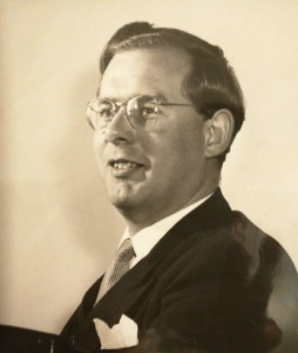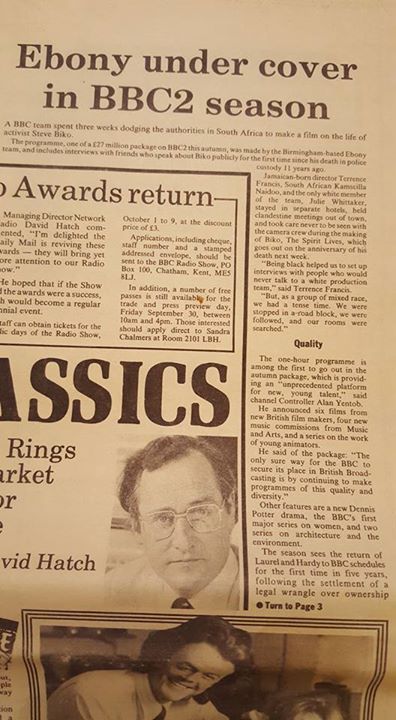Copyright resides with the original holder, no reproduction without permission.
Roy Ronnie died on 18th September 2015. He produced an enormous number of shows from Pebble Mill, including 77 editions of Saturday Night at the Mill between 1976-81. Annie Gumbley-Williams was Production Secretary for the last three series, and Production Assistant on other programmes with Roy, including the fishing series, Hooked. She remembers Roy being great fun to work with, and a very talented, witty and kind man.
This photo of Roy was taken when he was Midland Region News Assistant, taken in February 1961.
Thanks to Annie Gumbley-Williams for passing on this sad news, and the information about Roy.
The following comments were left on the Pebble Mill Facebook page:
Julie Hill:’ So sorry to read about Roy Ronnie and send condolences to his family. Saturday Night at The Mill was a fantastic show attracting great performers & a large audience. My great friend Penny Arcatinis and I were responsible for serving wine to the public before the show! They’d scavenge through the plastic cups in search of the largest ones I recall…
Happy days. RIP Roy. You were a top Producer.’
Susan Astle: ‘Sad news, I worked on many Saturday Night at the Mill. They were always great fun and, at times, unpredictable! I think alcohol may have played a small part. Susie Bankers.’
Tim Dann: ‘Very sad…I enjoyed my time as Designer on the first series of Saturday Night at the Mill…with the two Roy’s…& again with them both on the Kate Bush special….Those ‘daze’ will never be repeated!’
David Shute: ‘Another good one’s gone. I remember doing the warm-up for Sat Night. He was a great man for encouraging people to do more than they thought possible. Super chap.’

